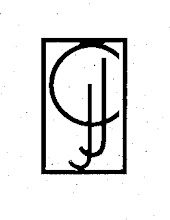 I’ve developed a habit of writing down ideas, overheard comments, interesting news, films to see, and reminders on the nearest piece of paper. I carry teensy notebooks in my pockets and have unused page-a-day calendars around the apartment for this purpose.
I’ve developed a habit of writing down ideas, overheard comments, interesting news, films to see, and reminders on the nearest piece of paper. I carry teensy notebooks in my pockets and have unused page-a-day calendars around the apartment for this purpose. Today, the clumps of papers cluttering tabletops, journals, and books confronted my brief but victorious decluttering agenda. On one scrap of paper was this:
light spelled “lite” in Victorian collage album
Ah yes. I saw this at the Art Institute in an exhibition called “Playing with Pictures: The Art of Victorian Photocollage.” It stood out to me because I’ve listened to so-ooo-oo many people bend my ear about the appalling influence advertising and lazy writers have had on our language, especially during the Hippie ’60s era. Yet contrary to the etymology given in dictionaries, here was a variant spelling used, with perfect penmanship, by an educated, well-read noblewoman of the Victorian era. Another scrap of paper held this piece of a speech (“The Alphabet and Simplified Spelling”) by humorist Mark Twain:
“[S]implified spelling is all right, but, like chastity, you can carry it too far.”
He was addressing industrialist Andrew Carnegie, who at the time was a proponent of a movement to reform our spelling to match our pronunciations: “enuf” for enough, “bizness” for business. Carnegie was even willing to fund it. But Twain took him to task, calling it a piecemeal approach. He proposed, instead, an entire overhaul of our alphabet—which he believed was the source of our confounding language. You see? Our language is ever-shifting. Some people want it to stand still, while others can hardly wait to reshape it into alignment with their own interpretations of language principles and societal needs. The “Mad Men” of mid-century America weren’t the first to play around with spelling.
Carnegie would have appreciated today’s texting/IMing culture and the practical truncation of words. He wouldn’t have had to fund the change much today; it’s happening on its own.



No comments:
Post a Comment